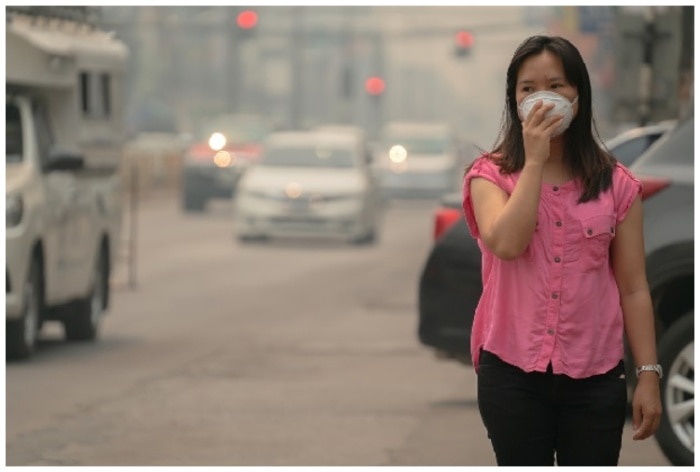While factors like age, weakened immune system and underlying health conditions contribute to pneumonia risk, emerging evidence suggests that air pollution may also play a role.
Delhi NCR and similar regions are grappling with a recurrent crisis of hazardous air pollution and smog. Not only are pollution levels outside getting worse, but indoor air quality is just as deadly a problem and has contributed significantly to the alarming surge in respiratory issues. This includes the exacerbation of existing conditions and the emergence of severe threats like pneumonia.
Pneumonia is a respiratory infection that inflames the air sacs in one or both lungs. It can be caused by various infectious agents, including bacteria, viruses and fungi. The condition is characterised by symptoms such as cough, fever and difficulty breathing. While factors like age, weakened immune system and underlying health conditions contribute to pneumonia risk, emerging evidence suggests that air pollution may also play a role.
HOW AIR POLLUTION LEVELS AND PNEUMONIA LINKED?
- Particulate Matter (PM) And Pneumonia Risk: Elevated levels of particulate matter (PM), especially fine particles like PM2.5, have been linked to an increased risk of pneumonia. These tiny particles can penetrate deep into the lungs, potentially facilitating the entry of infectious agents and triggering respiratory issues.
- Common air pollutants like nitrogen dioxide (NO2) and ozone (O3) have been associated with respiratory inflammation and compromised immune responses. Long-term exposure to these pollutants may weaken the respiratory system’s defences, making individuals more susceptible to pneumonia and other respiratory infections.
- Volatile Organic Compounds (VOCs) emitted from various sources, contribute to air pollution and have been linked to respiratory issues. Some VOCs can react with other pollutants, worsening the respiratory effects of air pollution and potentially increasing the risk of pneumonia.
- Air pollution can induce inflammation in the respiratory tract, compromising the body’s ability to fight off infections. Prolonged exposure to pollutants may also lead to immune system suppression, making individuals more vulnerable to respiratory infections, including pneumonia.
- Airborne pollutants may serve as carriers for pathogens, facilitating their transport deep into the respiratory system. The transport mechanism increases the likelihood of infections, as pollutants can act as vectors for the entry of bacteria or viruses into the lungs, contributing to the risk of pneumonia.
As we deal with the problems of pollution, it’s crucial to understand and find solutions for how it affects our breathing and the risk of infections like pneumonia. This way, we can take better care of our health and the health of everyone around us.

